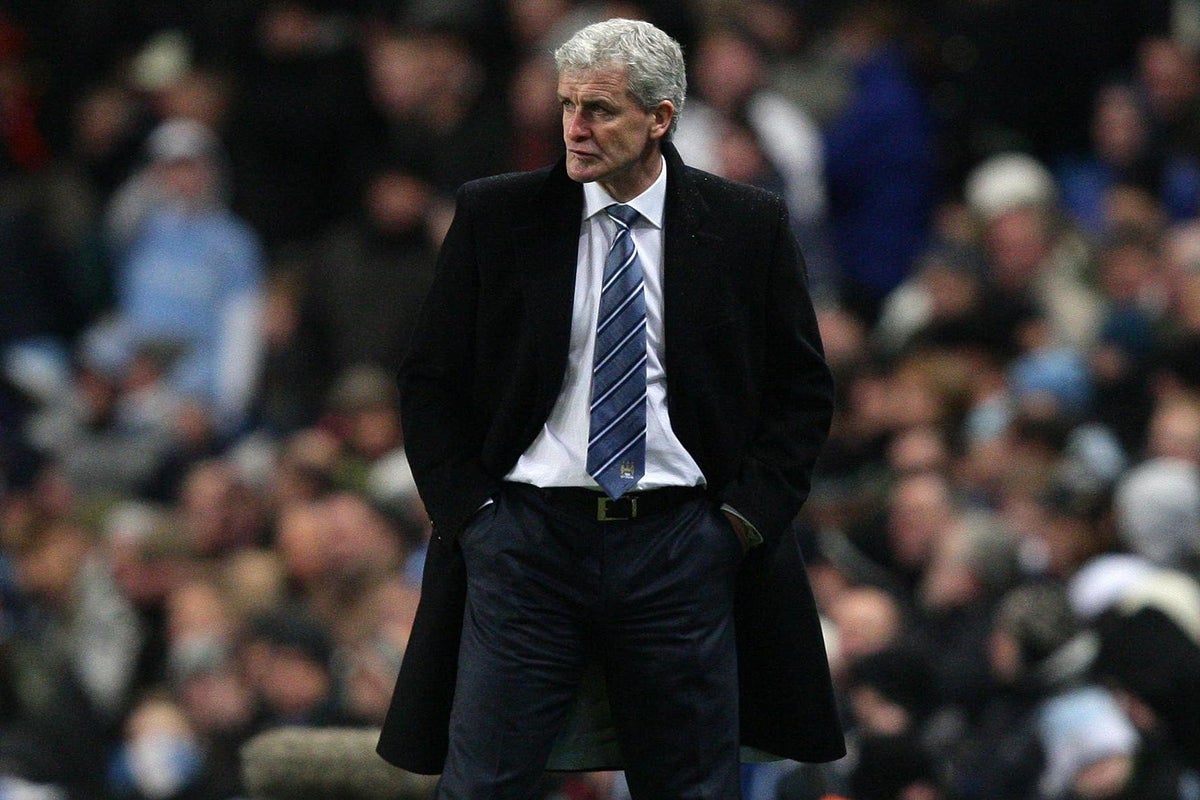
Mark Hughes was sacked as Manchester City manager on this day in 2009, paying the price for a run of two wins in 11 games.
Roberto Mancini was installed as Hughes’ replacement, with Brian Kidd as his number two, in a move which confirmed speculation that a decision had already been taken before an eventful 4-3 win over Sunderland, at which the Italian was present.
A three-goal hammering at Tottenham convinced owner Sheikh Mansour and chairman Khaldoon al-Mubarak that Hughes could not steer City into the top four, as had been expected following a summer outlay of £120million.
Sheikh Mansour and the board felt there was no evidence that the situation would fundamentally change— Khaldoon al-Mubarak
“A return of two wins in 11 Premier League games is clearly not in line with the targets that were agreed and set,” Khaldoon said in a statement.
“Sheikh Mansour and the board felt there was no evidence that the situation would fundamentally change.
“The targets were agreed as a result of the player acquisition strategy of the club being radically accelerated in the summer as a result of very favourable conditions for any buying club.
“It was also based on the fact that the infrastructure of the club had been overhauled completely at great cost in order to create the best possible environment for the team.”
City also confirmed that Mark Bowen, Eddie Niedzwiecki, Kevin Hitchcock and Glyn Hodges – all part of Hughes’ coaching staff – had left the club.
There was an argument Khaldoon should have waited until after the Christmas fixtures against Stoke and Wolves, and even an FA Cup tie at Middlesbrough and a League Cup semi-final – the first time City had reached the last four of any domestic competition in almost 29 years – against Manchester United.
But, with another transfer window about to open, Khaldoon took the view it was better to act when he did.
In Mancini, he brought in a manager who had guided Inter Milan to three successive Serie A titles from 2006 before being sacked in 2008 after failing to make any impact in Europe.







